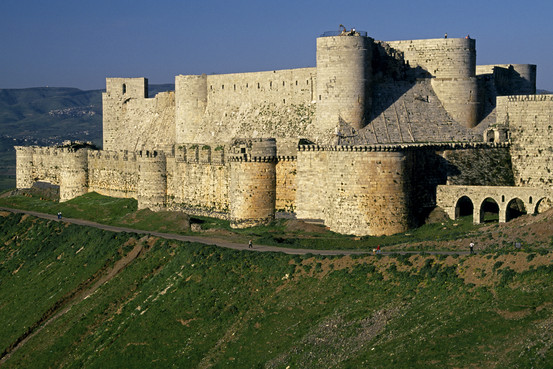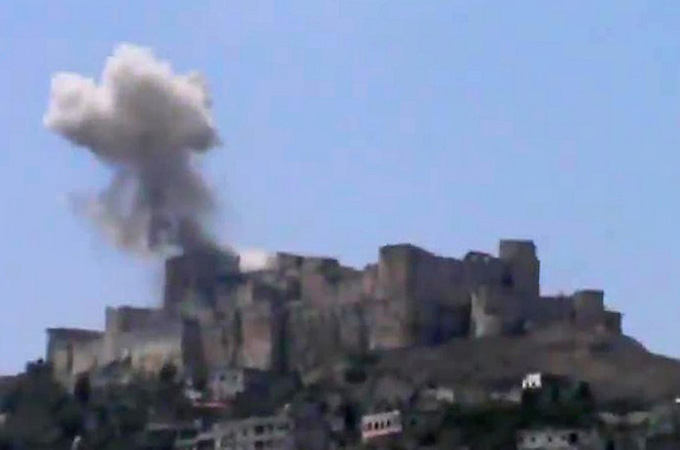Of every chapter in the history of mankind there was a page written in Syria (Rodrigo Martín in Tracey Shelton, 2013)
Present-day Syria (1) is only a small portion of the ancient geographical Syrian landmass, a region situated at the eastern end of the Mediterranean Sea from which Western powers created the contemporary states of Syria, Lebanon, Jordan, and Israel in the post-Ottoman era of the early twentieth century.
The Crac des Chevaliers, a Crusader fortress of the 12th to 13th centuries, in better days (Getty Images)
Greater Syria, as historians and political scientists often refer to this area, is a region connecting three continents, simultaneously cursed and blessed as a crossroads for commerce and a battleground for the political destinies of dynasties and empires. Exploited politically, Greater Syria also has benefited immeasurably from the cultural diversity of the people who came to claim parts or all of it, and who remained to contribute to the remarkable spiritual and intellectual flowering that characterized Greater Syria’s cultures in the ancient and medieval periods.
The Crac des Chevaliers damaged by an air strike on 12 July 2013 (al Jazeera)
Throughout history, Greater Syria has been the focal point of a continual dialectic, both intellectual and bellicose, between the Middle East and the West. Today, Syria remains an active participant in the trials and tribulations of a troubled and volatile region.
- Early History
- Crusaders and Conquerers
- The Foundations of Modern Syria
- An Independent Nation
- After the 1970s
- Build-up to crisis
- The Crisis
You can also have a look at:
- Chronology of key historical events since 1918 till today by the BBC
- Major stages of Syrian history seen through objects by Cultural Heritage Group, Department of Cross-Cultural and Regional Studies, University of Copenhagen
- Overview – From the ‘Stone Age’ to modern times by Cultural Heritage Group, Department of Cross-Cultural and Regional Studies, University of Copenhagen
Notes
- Texts from: Syria, Historical Setting (1987)
Resources
- Another casualty of Syria’s war: Its cultural heritage by Tracey Shelton in ‘Global Post’, 9 January 2013
- Syria Country Profile – History of Syria. Nationsonline.
- Syria. A socio-historical outline by Reem Al Khatib and Rana Yazaji published in ‘Cultural Policies in Algeria, Egypt, Jordan, Lebanon, Morocco, Palestine, Syria and Tunisia. An introduction’, Cultural Resource/European Cultural Foundation, Bookmanstudies, 2010, 174-176.
- Syria: History in ‘The Columbia Electronic Encyclopedia,’ 6th ed. 2012 at Infoplease.com
- Syria, Historical Setting by Afaf Sabeh McGowan in ‘Library of Congress Country Studies,’ 31 August 1987.






